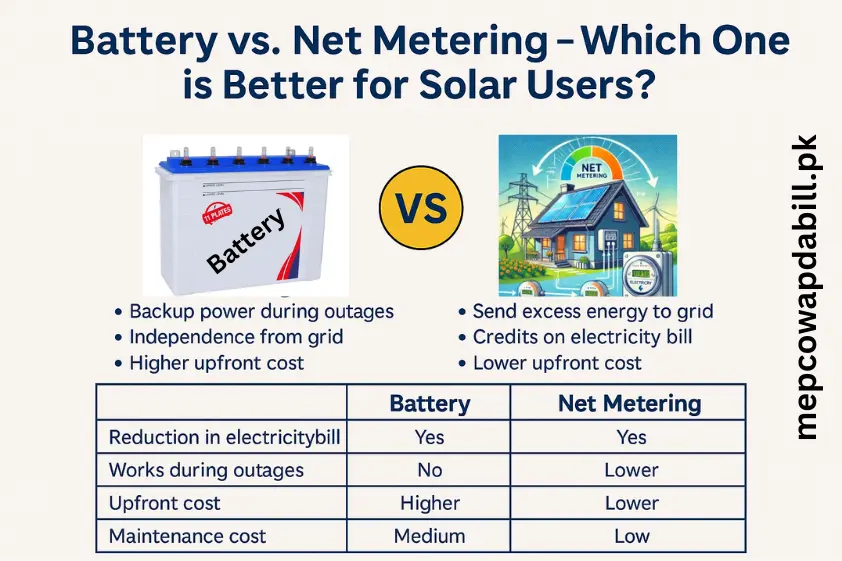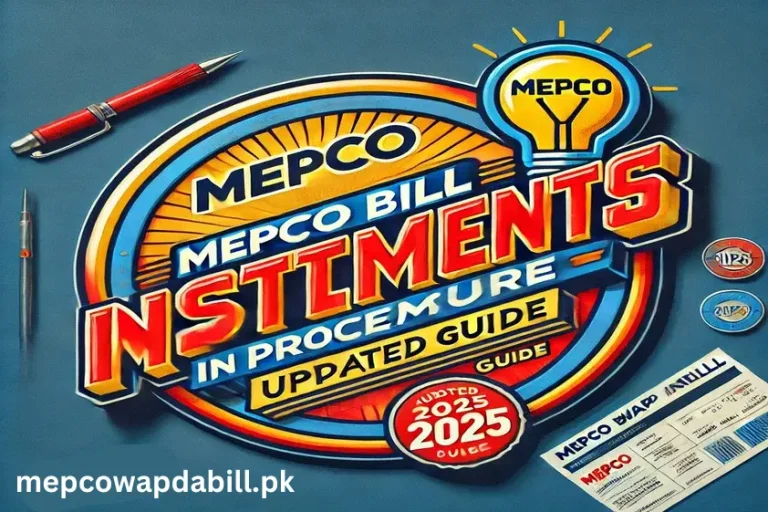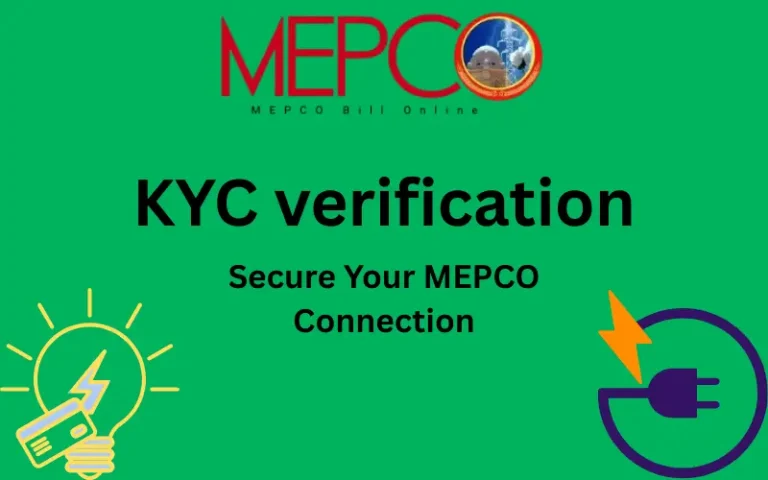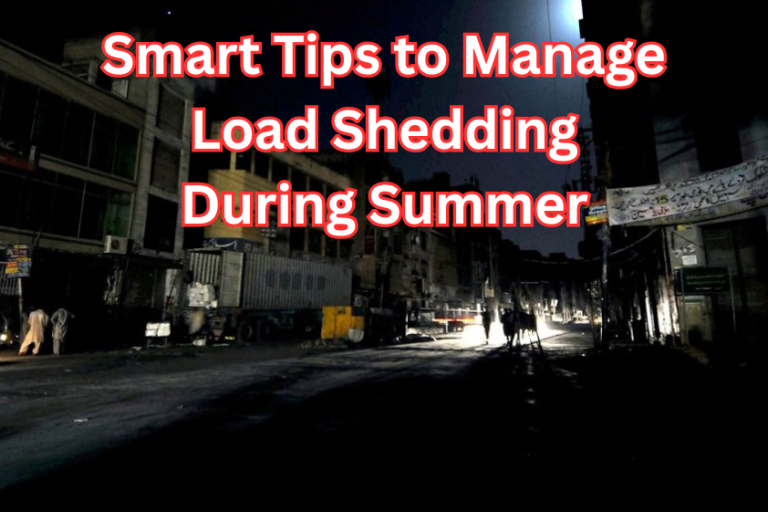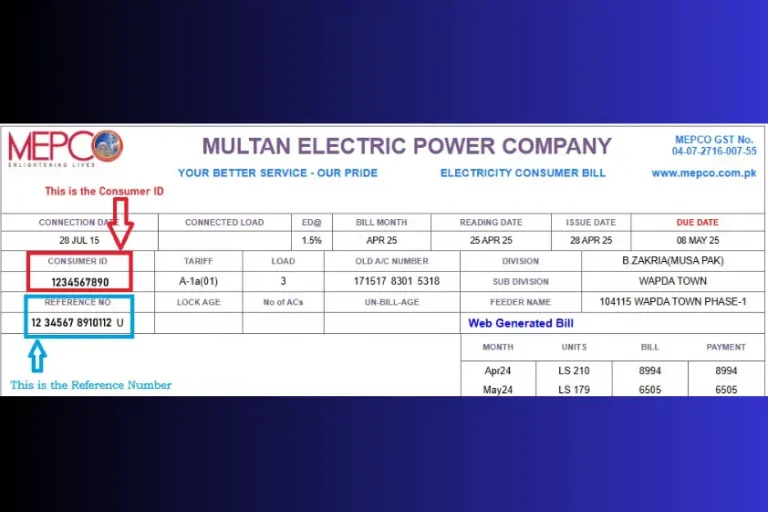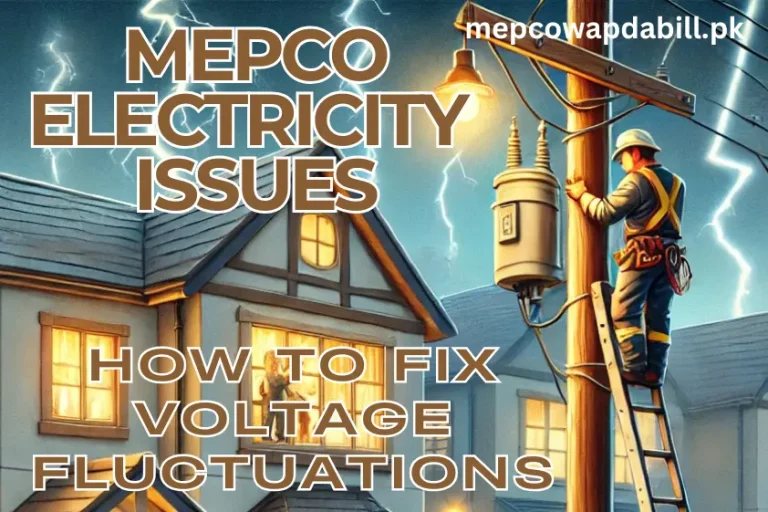Battery vs Net Metering [Which One is Better for Solar Users]?
Battery vs Net Metering is the topic of public interest since the cost of electricity is extremely high in 2025. Anyone thinking about installing a solar system for domestic use at home must face this question “Should I go for batteries or net metering”? Both options have their own benefits. Mostly it depends upon needs, location, and budget.
Let’s break it down in simple words. I will try to provide you with the answer that makes your concept about the batteries and net metering clear.
Check your latest MEPCO BILL HERE.
What is Net Metering?
Net metering allows you to send your extra solar energy back to the MEPCO grid. In return, MEPCO gives you credit for the units you export to its system. These credits reduce your monthly electricity bill. In simple words, you can sell your excess solar converted electricity in the daytime (under sunshine) to MEPCO and at night times you will get it back.
But there is a twist. It is not as simple as it looks in first instance. You will get back the one third of the units you had provided to MEPCO. In simple mathematics, if you had provided or sold 90 units to MEPCO/WAPDA in day time, you would get 30 units back in lieu of those 90 units in the night use.
Here’s how it works:
Your solar panels generate electricity during the day. If you don’t use all of it, the extra power goes to the grid. At night, or during cloudy days, you use power from the grid. Your exported units are adjusted against the imported ones. So, with net metering, your electricity bill can be reduced to zero, or even go negative in some cases.
But remember: this system only works when the grid is available. During load-shedding or grid failure, your solar system shuts off completely.
So, what to do in this case? Here comes the placement of batteries. In this scenario, you have to switch on an off-grid system or a hybrid system or a battery backup.
Latest Net Metering Rates for MEPCO Consumers
1. Buyback Rate Reduced to Rs.10/unit for New Users
In March 2025, Pakistan’s Economic Coordination Committee (ECC) approved a reduction in the net metering buyback rate from approximately Rs.27 to Rs.10 per unit—aligned with the National Average Power Purchase Price (NAPP).
- Who it applies to: Only new net metering consumers under fresh agreements.
- Who’s exempted: Current users with valid licenses or net metering agreements under NEPRA 2015 rules remain unaffected until their contracts expire.
2. Five-Year Contract Limitation and Periodic Rate Review
New net metering contracts will now have a maximum validity of five years, including a clause for periodic review of the buyback rate. Exported solar units will be compensated at this buyback rate, while imported electricity will be billed at standard peak/off-peak rates including taxes and surcharges.
3. Net vs. Gross Metering (Emerging Policy Developments)
There are indications the government is moving towards gross metering, where solar users would be paid a fixed rate for all their generated electricity, without offsetting household usage. One new policy suggests a future buyback rate around Rs.11.33 per unit, tied to being roughly one-third of the market electricity rate. Existing users would retain Rs.27 per unit under current agreements.
Takeaway for MEPCO Consumers
- If you’re already under a net-metering agreement, expect no immediate changes—you’ll continue receiving Rs 27 per unit until the contract finishes.
- If you’re applying now or planning to, note the reduced buyback rate (Rs 10/unit) and five-year contract limitation.
- Strategically plan solar investments by checking if such policies align with your payback expectations.
What is a Solar Battery System?
A battery stores the extra energy your solar panels produce. You can use it at night or during power outages or in cloudy weather.
Here’s what you get with a battery:
· Backup power during load-shedding.
· Freedom from the grid.
· More control over your energy usage.
Modern lithium batteries are long-lasting and smart. They charge during the day and discharge automatically when needed. But the evil lies in these initial costs, as they are extremely costly. You have to spend a huge amount on modern lithium batteries in 2025.
Here is an estimate of the huge cost a good-quality lithium battery in 2025. A good-quality lithium battery like Tesla Powerwall or AGS etc. may cost between PKR 280,000 to PKR 500,000. But it depends upon some factors like size of the battery, the season of purchase, and the dollar rate.
Battery vs Net Metering – Quick Comparison
| Feature | Net Metering | Battery System |
| Reduction in Electricity Bill | Yes | Yes |
| Works During Load-shedding | No | Yes |
| Initial Cost | Lower | Higher |
| Maintenance Cost | Low | Medium |
| Lifespan | 10–15 years | 3–5 years |
Which One is Better for You [Battery vs Net Metering]?
It mostly depends on your situation. If you want to reduce your electricity bill. You are living in an area that is load-shading free. If you don’t face frequent power cuts, then you have to go for net metering.
But on the other hand, you live in an area with long power outages and want full independence. In this case, you have to go for batteries.
You can also combine both. Many solar users install net metering and keep a small battery for backup. This way, you enjoy the best of both worlds.
Solar energy is a smart investment. Whether you choose batteries or net metering, you’re saving money and protecting the environment. Green energy is the life-saving solution for all of us in 2025 and the time ahead.
Just make sure you:
· Do a proper site survey.
· Hire a certified solar installer.
· Buy Tier-1 solar panels and inverters.
This will help you get the most from your solar system, no matter which option you choose.
“For more information about MEPCO, please visit this page.”

